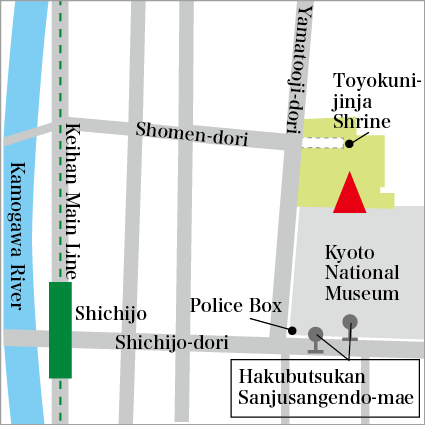The Toyokuni Shrine Treasure Museum
- Highlight
- Picture showing the special festival at the seventh anniversary of Hideyoshi’s death in 1604
Shrine commemorating Hideyoshi Toyotomi
Affectionately known as Hokoku (an alternative reading of the kanji characters for Toyokuni), this shrine has a karamon gate (National Treasure), which is a remnant of Fushimi Castle. Next to this impressive gate stand eight stone lanterns donated by warlords under the patronage of the Toyotomi family. It is said that this magnificent shrine was built after Hideyoshi Toyotomi died and was imperially conferred with the posthumous Shinto name of “Hokoku Dai-myojin”. Nevertheless, once the Toyotomi family had perished at the hands of Ieyasu Tokugawa’s troops, the Edo (Tokugawa) shogunate closed the shrine, and it was only reconstructed in 1880 on the site where the Great Buddha of Hoko-ji Temple stood under the orders of the Emperor Meiji, sometime after the shogunate had fallen.
The treasure hall was opened in 1925. The concrete building in the Momoyama style of architecture was very unusual back in 1925. Here, exhibits connected to the Toyotomi family, mainly from the Momoyama period (including Important Cultural Properties), are displayed.
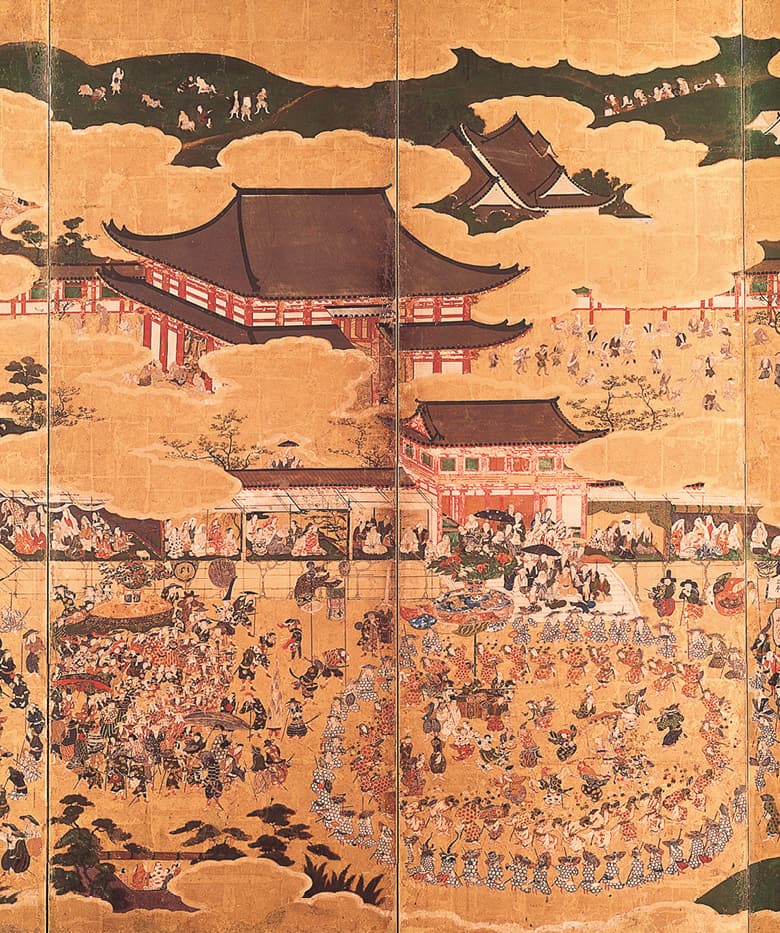
Left part of folding screen depicting Hokoku festival (Important Cultural Property)
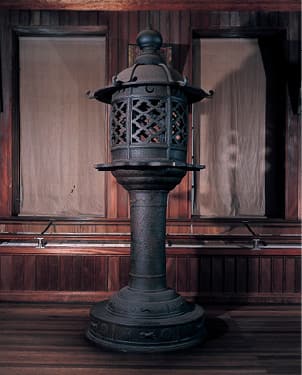
Iron lantern by Yorijiro Tsuji (Important Cultural Property)
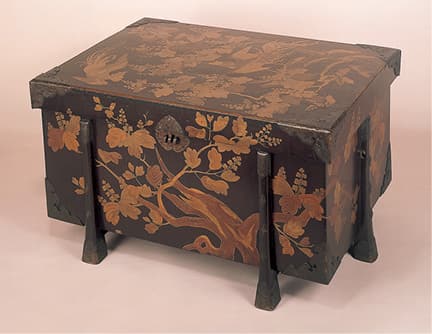
Decorated Chinese coffer (Important Cultural Property)
| Address | 530 Chaya-cho Yamato-oji Shomen, Higashiyama-ku |
|---|---|
| TEL | 075-561-3802 |
| FAX | 075-531-1643 |
| Hours | 9:00~17:00 (entry by 16:30) |
| Closed | Open daily |
| Adm | Adults ¥300, High school and college students ¥200, Elementary and junior high school students ¥100 |
| Access | A 10-min walk from Keihan Shichijo Stn/A 5-min walk from Hakubutsukan Sanjusangendo-mae Stop of City Bus |
| Parking | Available (Charged) |
Facilities near by
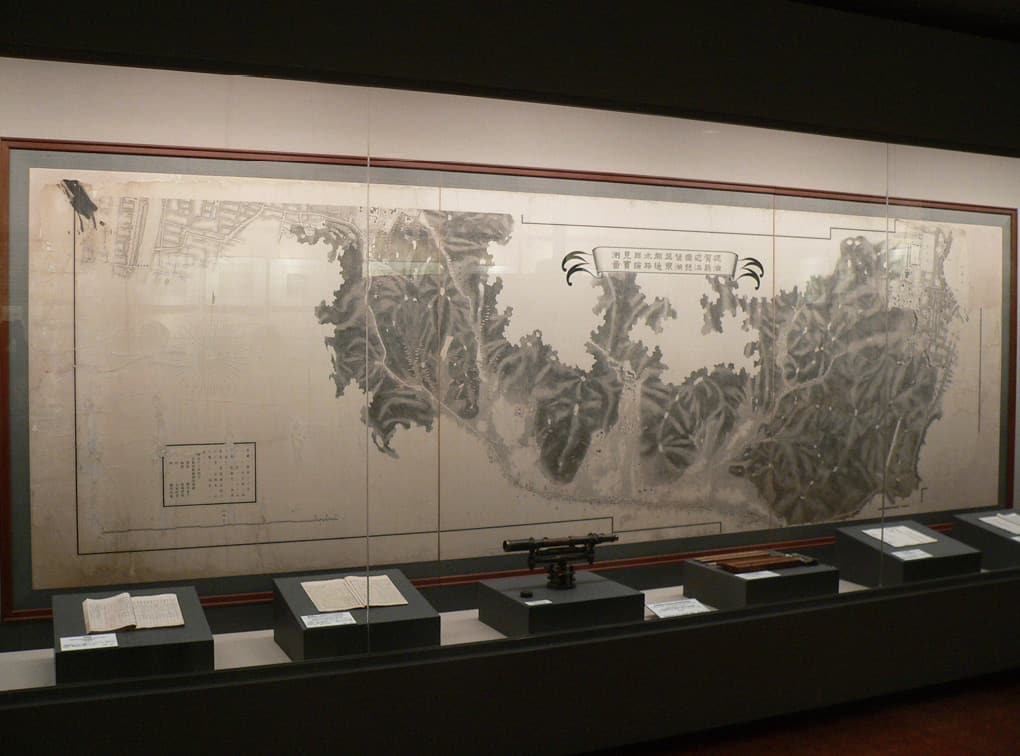
Lake Biwa Canal Museum of Kyoto
Birth and history of canal that sustained Kyoto
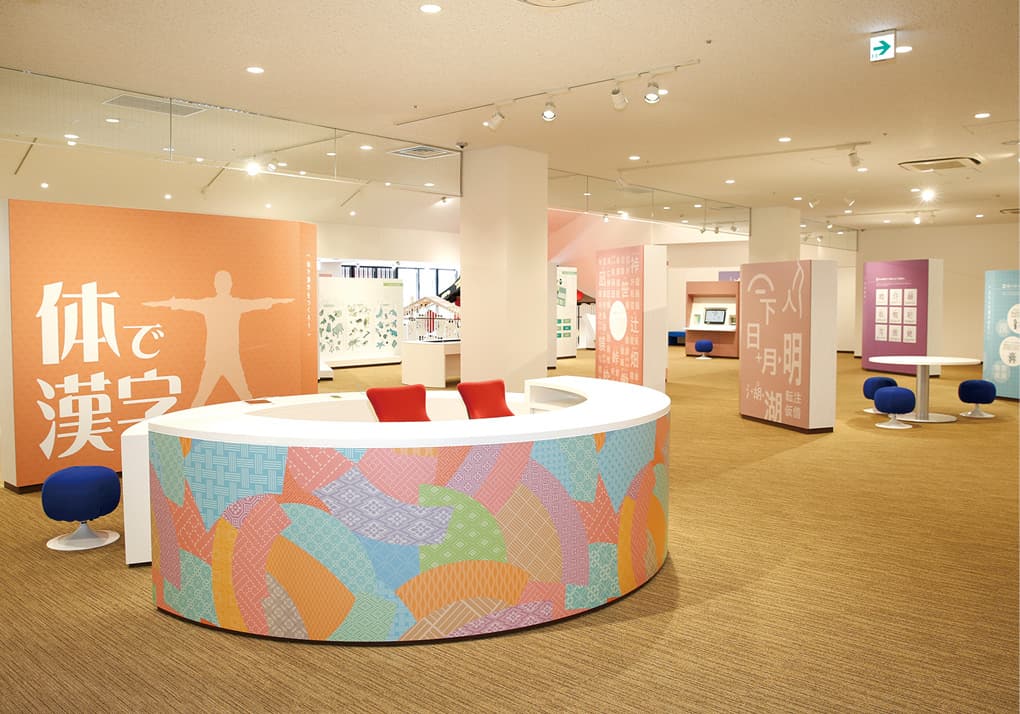
Japan Kanji Museum & Library
Encounter, learn and enjoy kanji
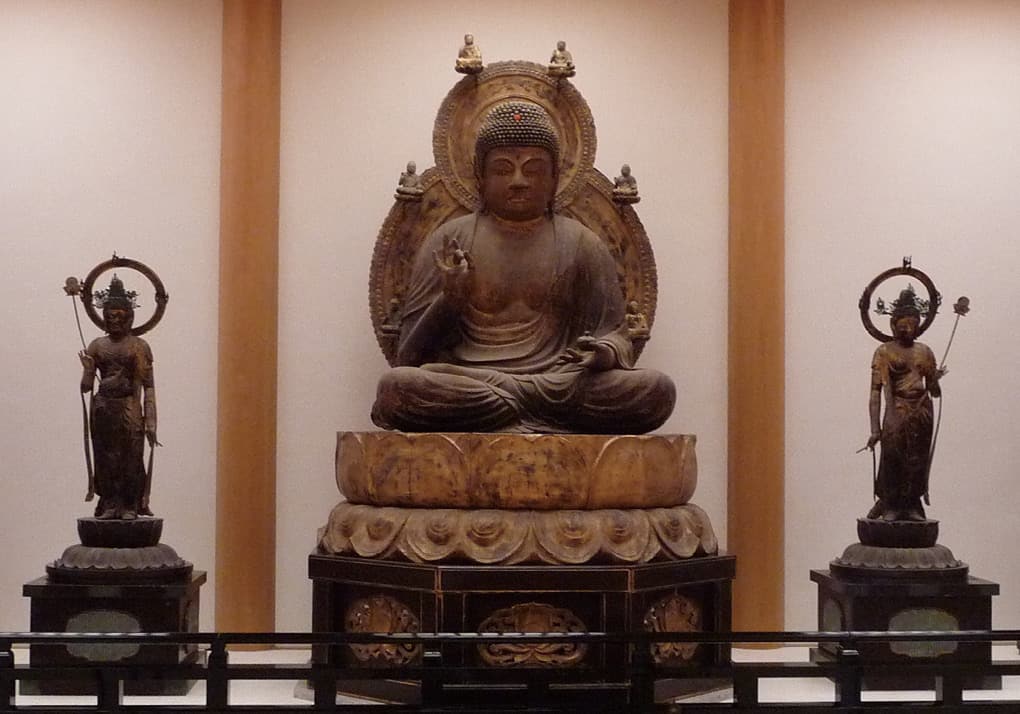
Daigo-ji Temple Reiho-kan
A treasure hall of famed treasures to view amidst famed vista of cherry-blossoms
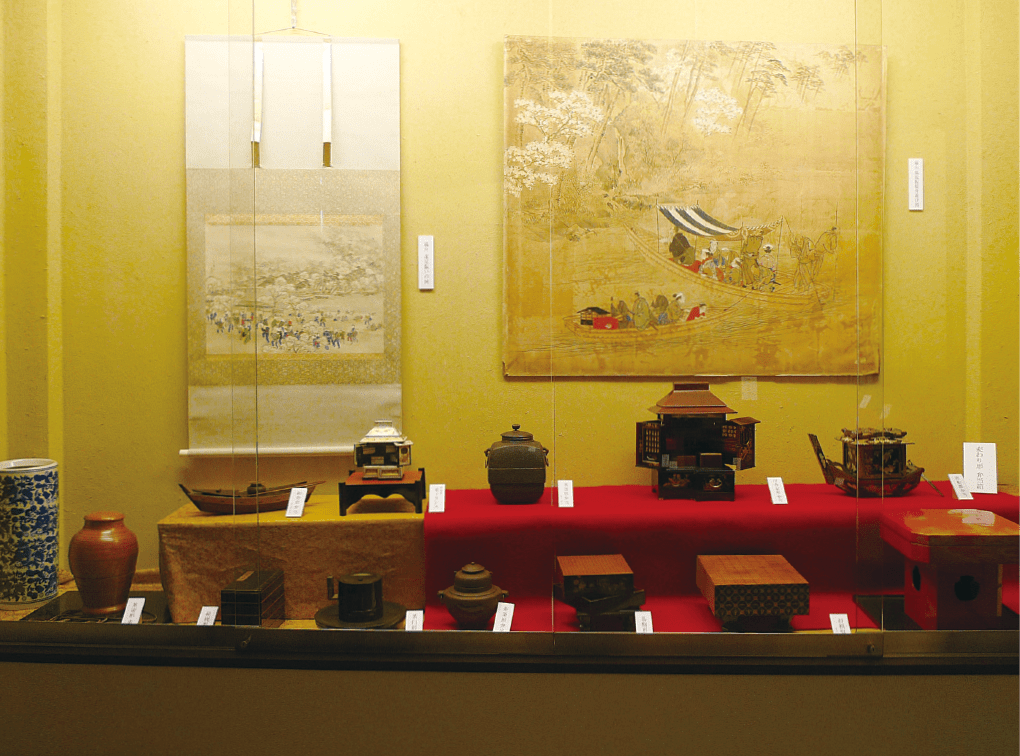
Obentobako Museum
Lunchboxes that speak volumes about the food culture of Edo times
